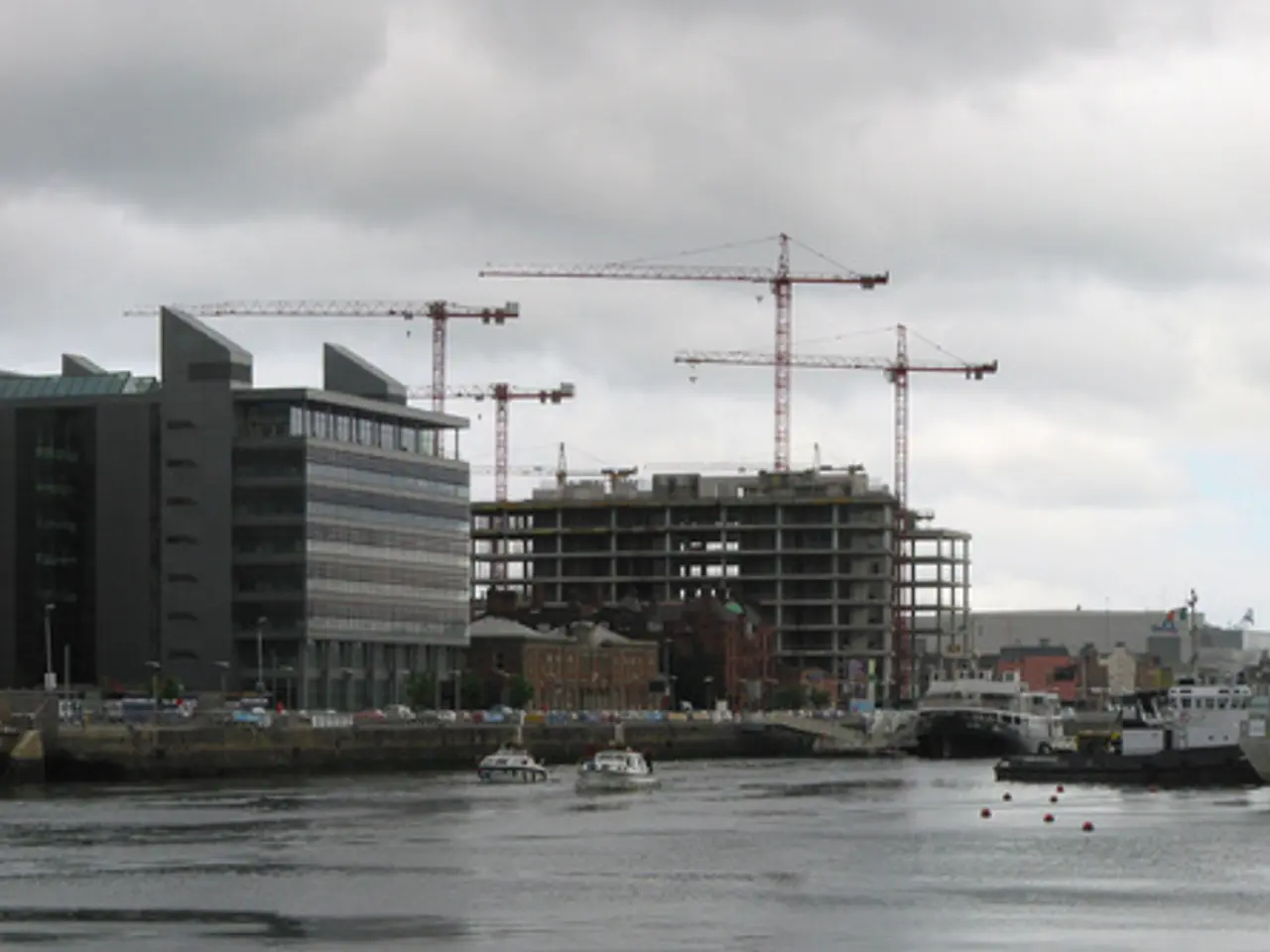Disruption Cripples North Baltic Waterway: Severe Implications Ensue
Strike on Kiel Canal Causes Significant Economic Damage
A strike on the Kiel Canal, a crucial shipping route in northern Europe, has been causing substantial economic damage, affecting jobs and shipping companies. The canal, which serves as a shortcut connecting the North Sea and the Baltic Sea, has been closed since Monday evening due to the strike.
Jörg Brockmann, spokesperson for the Waterways and Shipping Authority North-Ostsee-Kanal, confirmed the traffic disruption, stating that no ships are admitted to the canal in Brunsbüttel or Holtenau. Barges, however, continue to sail in Kiel and at the eastern end of the Kiel Canal during the strike.
The economic impact of the closure is enormous, reaching far beyond the borders of Schleswig-Holstein. Klaus Peter Molter, chairman of the association of canal pilots, expressed his concerns, stating that the strike is hitting them hard as they are waiting for the end of the warning strike. Each day the canal remains closed results in a "prosperity loss" of over 1.5 million euros in Germany.
The navy is using the Kiel Canal despite the strike and its associated economic damage. The corvette "Emden" left the Hamburg shipyard earlier than planned on Monday and passed through the canal on Tuesday night, despite the ongoing strike.
The trade union Verdi is using the strike to pressure wage negotiations in the public sector. However, there is no mention of strike pay for canal pilot Molter or solidarity strikes among Verdi members at brokers and canal pilots.
The closure of the Kiel Canal also means more emission of climate-damaging CO2 as ships travel around Skagen at high speed to keep to their schedules. This additional CO2 emission is a concerning side effect of the strike.
Jens-Broder Knudsen of the initiative Kiel Canal stated that the strike is further damaging the image of the Kiel Canal. Jan Klein, managing director of the brokerage UCA United Canal Agency, mentioned that 70 to 80 ships per day are affected by the closure, now traveling around Skagen at high speed.
The Maersk Line shipping company from Copenhagen had to cancel a return journey to Bremerhaven due to the closure of the Kiel Canal. The strike is affecting over 3,000 jobs that depend on the canal.
While disruptions to major maritime routes like the Suez Canal have documented daily economic impacts, there is no direct information or estimate available regarding the Kiel Canal closures from strikes in 2025. Despite this, it is clear that the ongoing strike is causing significant economic damage and disruption to shipping in northern Europe.
- The strike in the public-transit sector of the Kiel Canal, a crucial industry route in northern Europe, is causing substantial economic damage, potentially affecting thousands of jobs and shipping companies.
- The closure of the Kiel Canal, a shortcut connecting the North Sea and the Baltic Sea, is having far-reaching impacts on businesses, such as the shipping company Maersk Line, which had to cancel a return journey due to the strike.
- The closure of the Kiel Canal is not only causing economic damage but also contribute to the emission of climate-damaging CO2 as ships travel around Skagen at high speed to keep to their schedules, which is a concerning side effect of the strike.
- The general news about the strike on the Kiel Canal also includes crime-and-justice aspects, such as the trade union Verdi using the strike to pressure wage negotiations in the public sector, but there's no mention of strike pay for canal pilot Molter or solidarity strikes among Verdi members at brokers and canal pilots.




